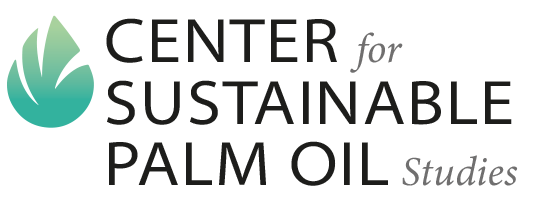
Keeping the world beautiful is just as important as your personal care routine, but sometimes these goals seem to be at odds. However, they don’t have to be. You can keep your body looking as beautiful as you want while also keeping the health of the environment in mind. All you need to do is make some simple swaps.
Microbeads often made with microplastics, have been a known pollution problem since 2012. And in 2015, then-President Obama signed the Microbead-Free Waters Act of 2015 banning the use of plastic microbeads in personal care products (like cosmetics) in the United States but not every country has come to this same realization.
Furthermore, many people still look for the exfoliating properties of microbeads in their skincare routine. If you are looking for a quality exfoliator for your skin, you should try swapping plastic microbeads for either an enzyme exfoliator or an exfoliation product that uses a natural ingredient to scrub the skin.
Enzyme exfoliators can be good for the skin because they are generally better for the skin than other exfoliating products. According to an article in Vogue, enzyme exfoliators do not disrupt the pH balance of the skin. Keeping your skin’s pH balance in check is important because it helps the flora, or microorganisms that live on your skin to thrive which helps stave off infections.
If you’re looking for a pH balancing, enzyme exfoliator for your skin, we recommend that you try the Jelly Glow Peel by Bliss. Miss the scrubbing feel of the microbeads? There are a variety of products on the market that use natural ingredients free of environmentally harmful microplastics. One fan favorite is The Unscrub by Paula’s Choice. This exfoliating cleanser uses biodegradable jojoba beads that dissolve as you wash your face. Jojoba beads are an environmentally friendly product because it comes from a
2. Swap Natural Ingredients for Synthetic or Sustainably Sourced Ingredientsshrub native to Mexico.
Greenwashing is a term used to describe when a company gives a false impression that their product is environmentally friendly when it really isn’t. One huge example of this is with products that claim that they are made with all-natural ingredients.
The problem isn’t that the company is lying about their product being made with natural ingredients, the problem is the environmental impact from using natural ingredients. One such example is all-natural cocoa butter-based products.
Cocoa butter (and chocolate) is linked to the deforestation of both rainforests and old-growth forests. While cocoa isn’t one of the top four products linked to deforestation, over the course of 20 years cocoa production has was responsible for the loss of between 2 and 3 million hectares of forests. That’s roughly the size of the entire state of Hawaii.
While there are other more environmentally destructive natural ingredients, palm oil for one, it is important to consider the environmental impact of choosing natural ingredients over synthetics.
Choosing natural ingredients over synthetics can lead to deforestation and over sourcing these ingredients. Whenever possible you should look for ethically sourced natural ingredients if you want to steer clear of synthetic chemicals. One example of an ethically sourced natural ingredient product is this face moisturizer by Fleur & Bee. They are a company that is committed to using sustainably sourced, vegan, and cruelty-free ingredients in their products. They have a number of quality skin-care products that you can try.
3. Swap Silicone Containing Products for Silicone-Free Products
Silicones are a group of liquid-like substances made from silica. They are typically found in makeup setting sprays and sweat-resistant sunscreens. Silicones aren’t harmful to humans and according to research they might not even be that bad for the environment as they tend to breakdown into relatively harmless substances like carbon dioxide, silica, and water. However, because silica often comes from sand, the use of silicones in beauty products may be contributing to the world’s sand shortage.
Since we don’t need silicone in our beauty products, this is one space where we can help out the environment while keeping our skincare routine intact. Instead of using your typical silicone-based makeup primer, try Skindinavia’s The Makeup Primer Spray instead. This highly rated makeup primer is not only silicone-free but is also cruelty-free as well.
4. Swap Sunscreen for Reef-Friendly Sunscreen
We all know that using sunscreen is important to keeping our skin healthy and cancer-free but did you know that there are many chemicals in conventional sunscreen that can harm marine life? The chemicals, like oxybenzone, octocrylene, and octinoxate, to name a few, are quite harmful to things like coral, fish, and algae.
No one is saying you should give up sunscreen and embrace a life of darkness to save the coral reefs. What they are saying is that when you go to purchase a new bottle of sunscreen, that you try and reconsider your purchase options. There are many old and new chemicals that will protect you from the sun and are also reef-friendly. Some of those chemicals are zinc oxide and titanium oxide.
And don’t worry, you can find reef-friendly or reef-safe sunscreen at your local store or even on Amazon. With so much attention brought to the plight of marine life due to sunscreen ingredients, even big brands have started to make reef-friendly products. You can choose from options like BeautyCounter’s Countersun Mineral Sunscreen or if you prefer a spray, try out Goddess Garden’s sport mineral sunscreen spray.
5. Swap Antibacterial Soap for Natural Soaps
Antimicrobial resistance is quickly becoming a worldwide problem and one factor contributing to this issue is antibacterial soap. The worst part? According to the FDA, they don’t even really work better than regular soap and water. Furthermore, no one has provided proof that long-term use of these products is safe.
One of the key components causing this crisis of antimicrobial resistance is triclosan. Triclosan has been linked to contributing to making bacteria resistant to antibiotics, possible thyroid issues, and potential UV exposure problems that may cause skin cancer.
If you want to avoid antibacterial-laden products, one option you can pursue is choosing an artisanal soap. Typically, artisanal soaps do not have triclosan and other antibacterial ingredients. If you’re looking for a vegan and cruelty-free artisanal bar of soap, you might enjoy trying this handcrafted bar soap by Green Orchid Soap Co or any of these wonderful artisan soaps by Lion & Rose.
6. Swap Products with Fragrances for Natural Identical Fragrances
Fragrances are often found in your skincare products for a number of reasons. They are often used to either enhance the scent of the product or mask an unpleasant odor from an ingredient. They often do not add any additional skincare benefits and can even cause problems to the user.
One frequent problem that comes from the use of fragrances as an ingredient in skincare products is that they can often cause contact dermatitis. In one study, researchers found that many fragrance ingredients can cause an allergic reaction, especially in people with eczema of the face or hands.
However, the problem with added fragrances doesn’t end there. Fragrances in pharmaceuticals and other personal care compounds (PPCP) have been found to be a contributing factor to aquatic pollution. The ingredients, like fragrances, in PPCP, have been found in high concentrations in marine animals and are suspected to be hazardous to their health.
If you want to be considerate to marine life, one thing you can do is choose products that with natural identical fragrances for those with synthetic fragrances. You can also choose fragrance-free products or no fragrance-added skincare products. For a fragrance-free face wash, you might what to choose this face cleanser by Fleur & Bee. If you’d like to go the natural identical fragrance route, choose Thrive’s natural face scrub, which is made with plant-based ingredients that are better for the environment.
7. Swap Palm Oil for Sustainably Sourced Palm Oil Products
Palm oil is a natural vegetable-based oil that is often found in personal care products, like shampoos and conditioners. The problem with palm oil is that large portions of the rainforests are being cleared to make way for plantations to grow these plants. Increased deforestation is linked to global warming, carbon emissions increases, and the shrinking of natural habitats for a variety of animals.
Personal care products being one of the chief utilizers of palm oils means that your hair and skincare products may be destroying Mother Earth. To help out the environment and keep your hair care routine intact, you can easily swap your current shampoo and conditioner for any of these hair care products by Dr. Bronners. They are vegan, cruelty-free, and contain sustainably sourced palm oil.
8. Swap Plastic Packaging for Sustainable Packaging Options
There’s been a lot of increased concern over plastic pollution in recent years, especially for plastic straws but did you know that all plastics are rapidly affecting the environment? Plastic waste is often found in our natural environment despite efforts to reuse and recycle plastic waste or place them in landfills.
But what does plastic waste have to do with your personal care routines? The problem stems from the packaging. Typically cosmetics, skincare products, and hair care products are packaged in plastic packaging which eventually adds to plastic pollution in our environment. If you want to help out our planet, one thing you can do is look for cosmetics that attempt to use sustainable packaging options.
One brand that’s made a commitment to helping out the environment is Axiology. Their cosmetics use sustainably made packaging. All of their packaging is not only handmade but is created from recycled paper making it biodegradable, compostable, and recyclable. One great product from Axiology is their cruelty-free, organic, and vegan lipstick.
We hope that we’ve helped you find ways to improve your personal care routine and make it more environmentally friendly. The products we highlight are mere samples of the thousands of different sustainable products that are on the market that will help you maintain your skincare, haircare, and cosmetic use while being more conscious of the environment.
By Jennifer Chonilla
Original link: https://www.onegreenplanet.org/lifestyle/8-simple-swaps-to-make-your-personal-care-eco-friendly/


